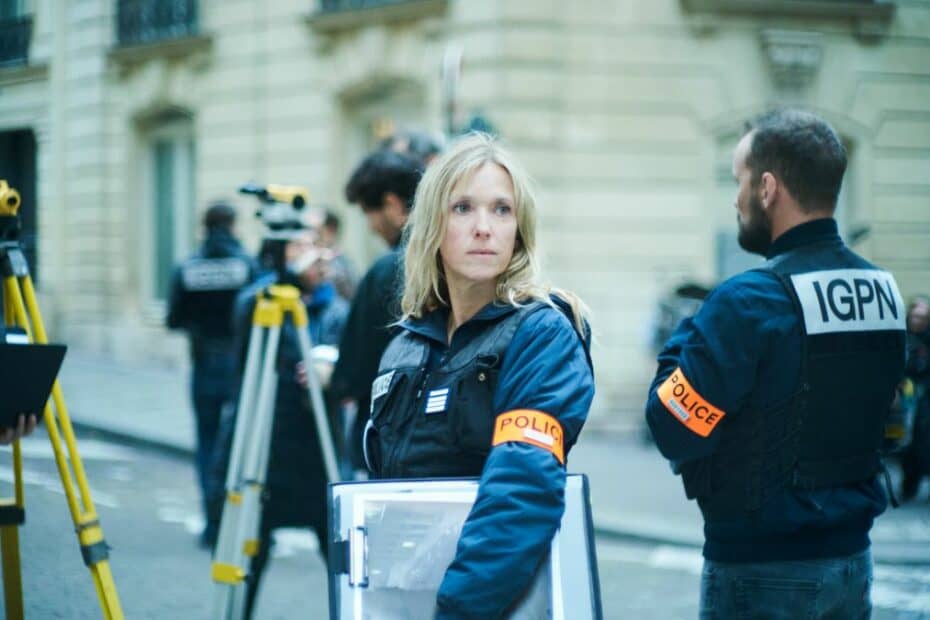Dossier 137, directed by Dominik Moll, is a French crime drama set during the 2018 Yellow Vests protests. Stéphanie Bertrand (Léa Drucker), an IGPN (Internal Affairs) officer, investigates a young protester, Guillaume Girard, who was gravely injured by a flash-ball during a turbulent Paris demonstration. What starts as a routine case turns personal when Stéphanie learns the victim hails from her hometown, Saint-Dizier, fueling her determination to uncover the truth. We follow the procedure in detail. Navigating CCTV evidence, interrogations, and bureaucratic resistance, she must confront institutional corruption and divided loyalties between her role as a police officer and her quest for justice. The film doesn’t shy away from depicting violent demonstrators, but the story’s main topic is police brutality.
It’s said that the devil is in the details, and if that is true, this is a thorough examination of the devil. Dossier 137 explores the minutiae of the police force’s work throughout the film as we follow Stéphanie through her crusade to dig up the truth. She is constantly questioned by colleagues who don’t like the idea of one of their own investigating them, but also the victim’s mother, who is eager to see justice being made. One could draw parallels with Loznitsa’s Two Prosecutors, screened in the competition the day before, at least regarding the protagonist’s trajectory.

Dossier 137 Procedural by default
Patrick Ghiringhelli has been Moll’s choice for cinematographer since Seules les bêtes in 2019, and his style is more muted than ever. The lensing is solely in service of the drama and rarely draws attention to itself. This is, obviously, an artistic choice on the team’s part, but while it renders the film uncluttered and to the point, it is not easy to escape the feeling that what you are watching might have been made for television. When I interviewed Moll, he agreed with the resemblance to Tavernier’s L.627 (1992) and stated that it was essentially the first film to depict the mundane reality of the police.1 The co-scenarist, Michel Alexandre, was a former policeman.
If Moll has worked with his cinematographer for some time, the collaboration with scenarist Gilles Marchand goes back even longer. At least since the director’s debut feature, Harry, He’s Here to Help (Harry, un ami qui vous veut du bien 2000). During the aforementioned interview, I learned, to my surprise, that Moll worked on the script of Marchand’s debut feature as a director, Qui a tué Bambi (2003), even though he was not mentioned anywhere in the credits. That the script is penned by two people who know each other well is obvious. The writing is the main part of the film, and the scenario is impressively balanced, not least considering the sensitive topic.
Anyone looking for cinematic fireworks should look elsewhere, but if one is interested in a depiction of a tumultuous part of recent French events, Dossier 137 is bound to please.
Screened in the competition of this year’s Cannes Film Festival.
Dossier 137 by Dominik Moll - The Disapproving Swede Clear

Director: Dominik Moll
Date Created: 2025-08-28 09:17
2.5
Pros
- Supremely well-written
- Léa Drucker's performance
Cons
- Not that cinematic. Would have worked equally well for television.
